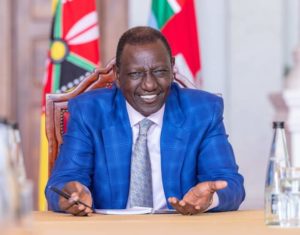
Nairobi, Kenya – The streets of Nairobi resonated with the sound of footsteps and the echoes of sorrow on Sunday as hundreds marched in solidarity to honor the lives lost during the recent anti-government demonstrations. This tribute comes in the wake of violent clashes over a controversial finance bill, which ignited a tasking debate and left President William Ruto grappling with a national crisis.
The protests, driven by widespread discontent over proposed tax hikes, turned deadly, with rights groups reporting at least 30 fatalities. These figures starkly contrast with the official toll of 19, revealed by President Ruto in a recent television interview. “I have no blood on my hands,” Ruto asserted, addressing the nation amidst growing scrutiny and anger.
Ruto’s declaration came as he promised a comprehensive investigation into the deaths, marking the first time the authorities have acknowledged the loss of life. “It is very unfortunate. As a democracy, that should not be part of our conversation,” he stated, expressing his commitment to transparency and justice. “There will be an investigation on how these 19 Kenyans died. There will be an explanation for each and every one of them.”
The demonstrations, which were initially peaceful, erupted into chaos last Tuesday when parliamentarians, under significant pressure from the International Monetary Fund (IMF), passed the unpopular tax increases. The decision spurred protesters to storm the parliament complex, leading to violent confrontations with the police and the outbreak of a fire.
Amid the turmoil, Ruto’s televised interview was a critical moment, as he sought to distance himself from the violence and affirm his leadership. “Any killer cop who went beyond what is provided for in the law will have action taken against them,” he promised.
However, he also issued a stern warning to those who attacked the parliament, emphasizing that the perpetrators would face justice. “Criminals infiltrated and caused mayhem. Those who attacked Parliament and the judiciary are on CCTV. Many of them are on the run but we will catch them,” he asserted.
The president’s abrupt reversal on the finance bill, opting not to sign it into law, has been seen as a significant concession to the public outcry.
“It means that we have gone back almost two years,” Ruto explained, acknowledging the fiscal challenges this decision entails, including increased borrowing.
He stressed “We should have communicated better,” reflecting on the government’s missteps in addressing the people’s concerns.


